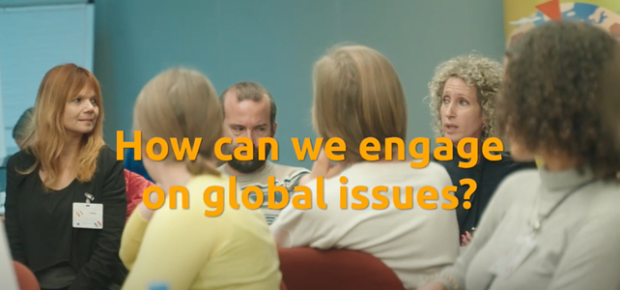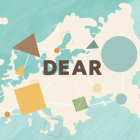Young Reporters Highlight Inequality as top global Climate Challenge
News details

Our times should be considered a turning point, in which everything is questioned. The issues of climate change and migration urge us to change perspectives, and to focus on inequality. Too many voices still struggle to reach the microphone and speak up.
Women and young activists such as Kertu Birgit Anton, a law student who is active in the Fridays For Future movement in Estonia, explains how the road is still long: «It is more difficult to speak out on issues that are not very broadly supported in the public, especially if you are young and a woman at the same time. We cannot be gender blind and imagine living in a world where gender discrimination simply does not exist and people are treated equally no matter their gender; because that is not the case.» Watch her video here.
Social anthropologist Mark Nuttall, researches climate change’s impacts on small communities, especially those in Northern Greenland and Canada, who depend on ice. Indigenous people’s voices are crucial for the management of the land, and in some parts of the Arctic their knowledge is taken into account: «In the Inuit territory Nunavut, which means “our land”, there is respect for indigenous knowledge. Their native knowledge is used in all aspects of governance, in particular wildlife management.»
«In Canada and Alaska they have co-management models», explains Nuttall. «Western science and indigenous knowledge are put to work together. Indigenous knowledge is also gendered and generational. Women have different knowledge about the environment. So when communities talk about adaptation strategies or wildlife management, it is important to take into account this plurality of knowledge.»
Nuttall however also points out that indigenous peoples’ knowledge is not always taken into account. Especially in Greenland, part of the kingdom of Denmark, despite self-governance, there was “not even a discussion about indigenous land claim.” Watch his video here.
When addressing inequalities, everyone should be involved in the conversation. The way in which these issues are communicated is also crucial. Kelvin Akpaloo is an Afro-Irish facilitator, trainer, dancer and spoken word artist, who promotes human rights issues, inclusion and integration of minorities, community development, and youth development. He describes his workshops as «emotionally provocative», with a prime focus on «the personal self». He relates his process «to truly empower or activate a person, especially young people».
First Akpaloo encourages participants to think about «how you see this world, and how the world sees you.» Next he asks them: «What are the barriers that prevent you from being active global citizens? What, how and who could help break these barriers?» Akpaloo believes that art is a universal language which accompanies us in every single aspect of our life. At the same time, he also points out that it is difficult to promote dialogue in the world we live in today.
We need multiple perspectives to treat today’s global issues and challenges. We need to explore them through the lens of inequalities; to recognise that different global problems affect different people in different ways. We need to be inclusive and promote participative and creative approaches and communications. We are not there yet: we are shifting paths, but the road is still long.
Mindchangers Reporters are active volunteers in the EU DEAR project. Mindchangers improves the capacities of Local Authorities and Civil Society Organisations to launch and run projects and activities that engage youth in addressing climate change and migrations. With the slogan “Know > Act > Change”, Mindchangers is running a pan-European, innovative youth-oriented campaign. It provides sub-granting opportunities, engages in research and runs capacity building.
Facebook: @mindchangersproject
Instagram: @mindchangers_projec

Log in with your EU Login account to post or comment on the platform.